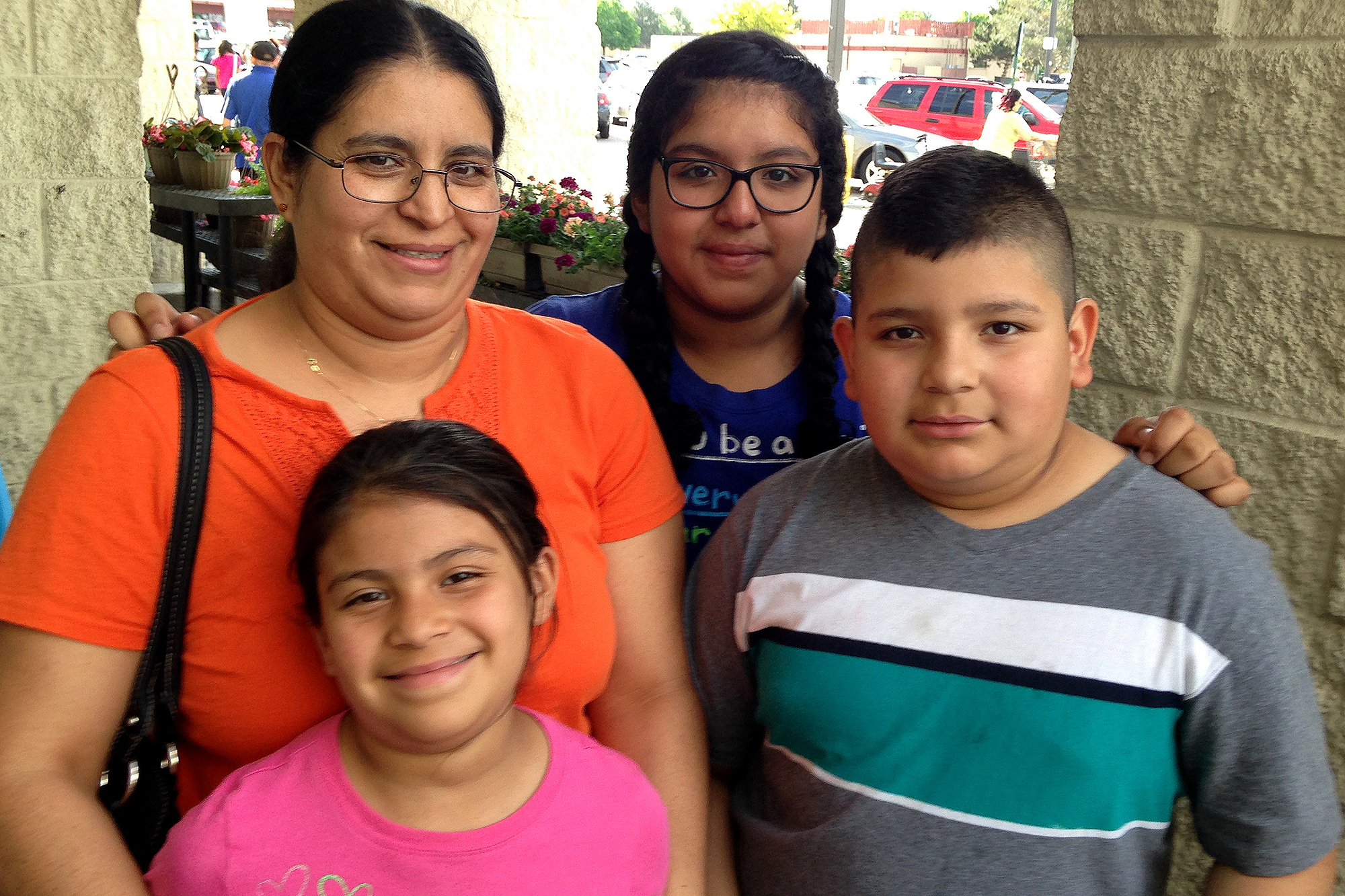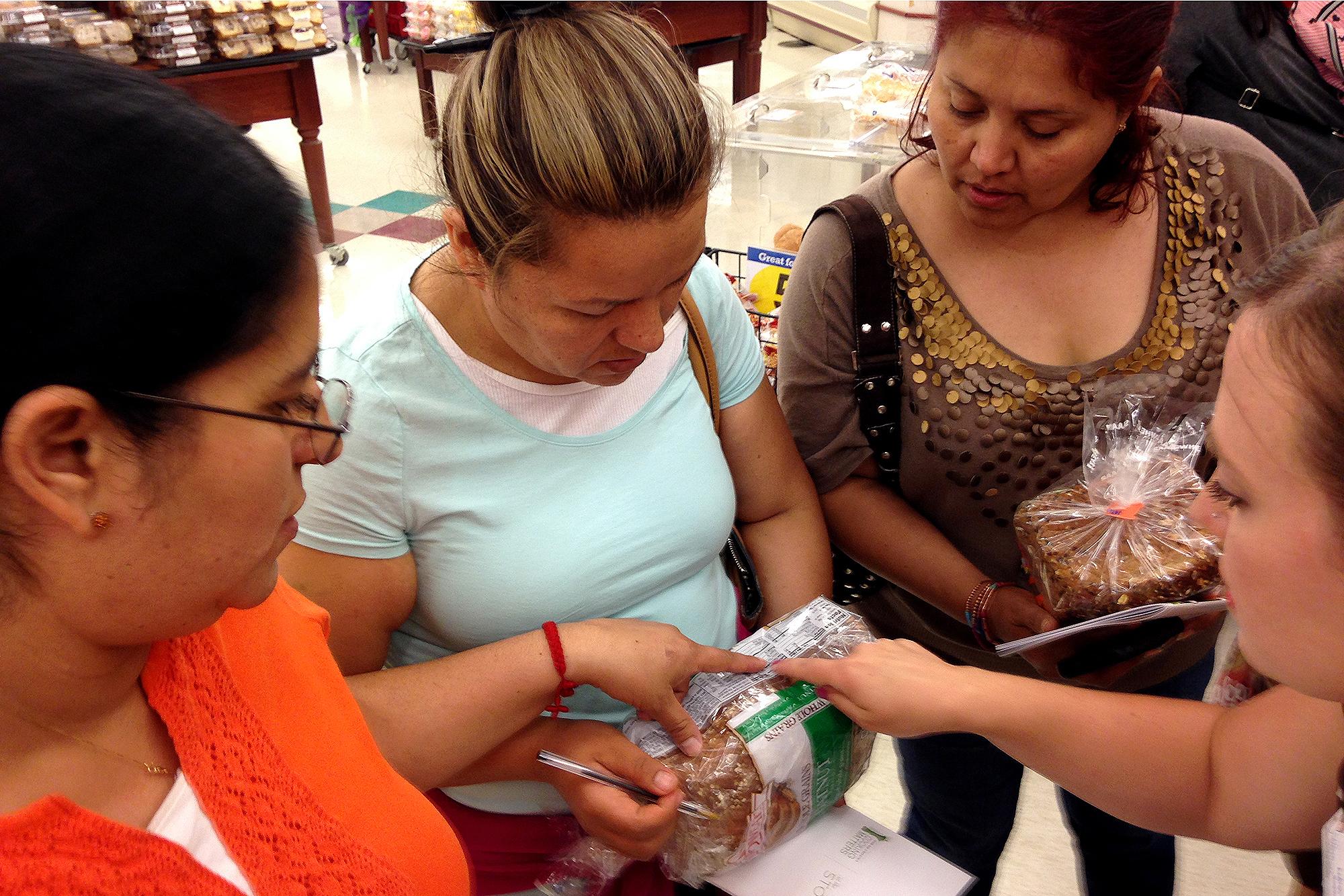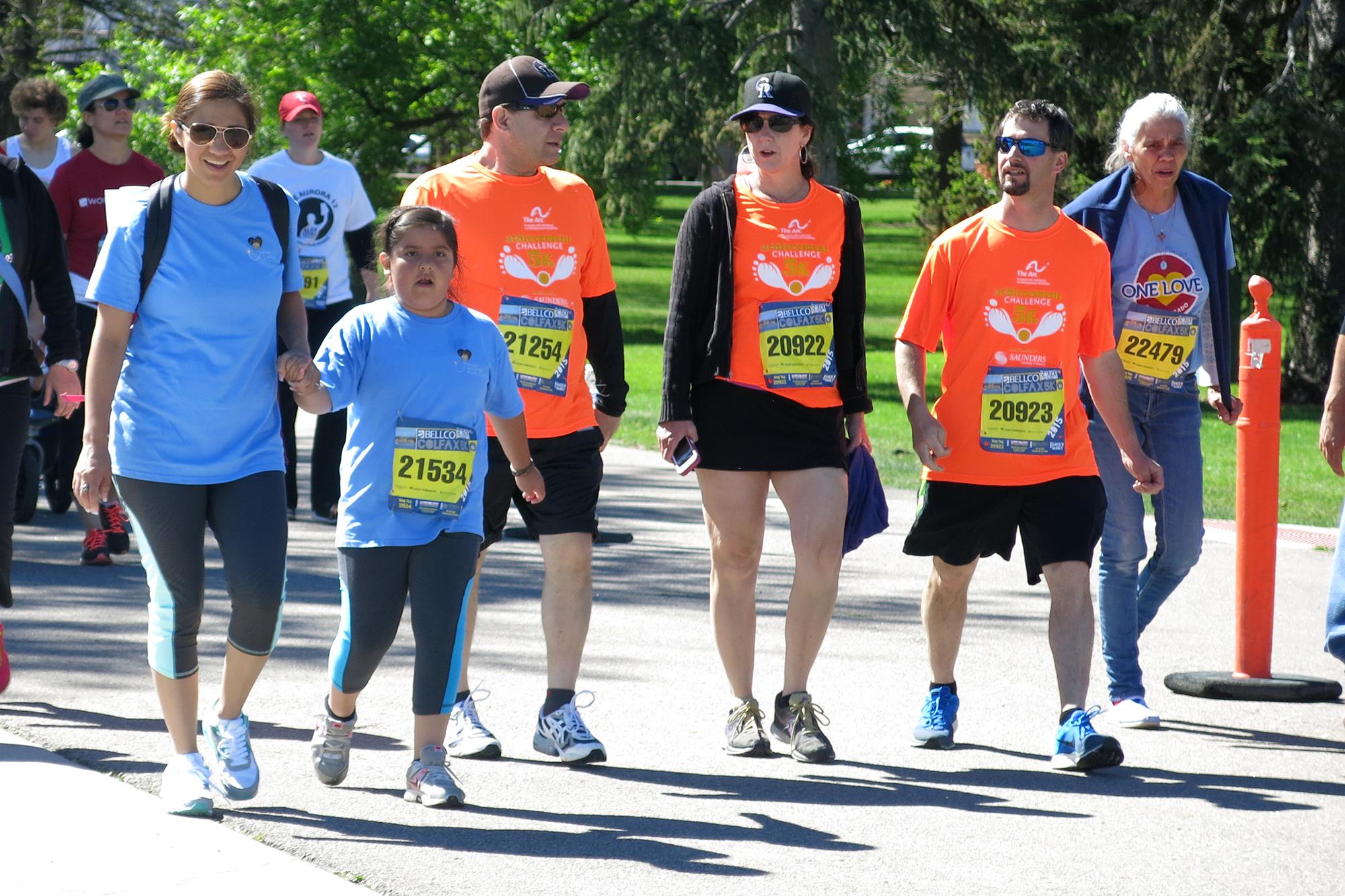
Argelia Sanchez faces a dilemma.
Her family, which lives in Aurora, is on food assistance and by mid-month that money is gone. They have to decide what kind of food they can afford to eat, and even when they can afford fresh fruits and vegetables, her kids won't touch them.
“No me gusta," she says in Spanish. "I tell them it’s healthy. I make salads and they don’t want it."
The family's emblematic of a pattern: Colorado is one of the country’s leanest, most physically active states for adults. But when it comes to kids, it's a different story: about a fifth of them are overweight or obese. The figure for poor children is closer to a third, and even higher for blacks, Hispanics and the uninsured, according to the Colorado Child Health Survey.

But the Sanchez family is also part of a program trying to turn those numbers around: the Get Fit bootcamp is set up for families like hers on public assistance, offering help in buying the right foods on limited budgets, getting helpful medical advice, and adopting a healthier lifestyle. A pediatrician at Rocky Mountain Youth Clinics suggested the program because her kids struggle with their weight.
Not long ago, her family joined others from the program at an Aurora supermarket. The produce section is the first stop. They compare types of lettuce and prices on grapes. Nearby, the kids go on a scavenger hunt, looking for orange, green and red fruits and vegetables. Argelia’s daughter Yaritza, a 14-year-old with glasses and braided black hair, says often she and her siblings don't make nutritious choices.

"We usually don't like the food," she says. "Sometimes my mom buys Ramen noodles just because sometimes we're in a hurry and that's, like, the fastest thing to make." And she knows that she and her brother, Yovany, who is 10, have to make changes.
"It worries me a lot and I'm scared my brother is going to turn out like me," Yaritza says.
Her struggle is not uncommon. Dr. Shale Wong, a professor of pediatrics at Children’s Hospital Colorado, says many families don’t have access to healthy, affordable foods. Many poor neighborhoods don't have stores nearby that sell healthy choices. And low-income parents often work long hours, so cheap junk food is often the first choice.
"There is a definitive connection between low income, hunger and obesity," Wong says.
Dr. Sophie Meharena, a pediatrician with Rocky Mountain Youth Clinics, who helped lead the Get Fit grocery visit, says many families consume unhealthy food out of convenience. "A lot of times people in poverty are working shift work, nights, days, middle of the day, trying to alternate and different people are feeding the kids all the time," she says. With the stress that adds, Meharena says, the question becomes "can you get food fast, can you get food between shifts at work?"
Children’s, and a number of other Colorado institutions, have launched various programs to help. There are cooking classes to teach how to make healthy meals. There are classes in schools where kids can earn discounts at stores by developing good habits. And there are physical activity programs.
Off to the races
On a recent sunny Saturday, a Get Fit group warms up for the Colfax 5K. Briana Ramirez and her 7-year-old daughter Evelyn are here for Evelyn’s first foot race.

Colorado’s kids rank in the middle nationally when it comes to physical activity, according to the 2015 Colorado Health Report Card, released by the Colorado Health Foundation and the Colorado Health Institute. Poor children are far less likely to be physically active. Families in this Get Fit program learn to work exercise into their regular schedules. Ramirez says she signed up Evelyn for this class after a check-up.
"My daughter's weight is an issue," she says. "She is overweight and I just want to, you know, make her healthy, get her fit, so that's why I joined. I'm really concerned about her."
With that, Evelyn and her mom take off with thousands of others in the race. An hour later, they cross the finish line, arms in the air. Evelyn says she’s learning some life lessons through the Get Fit program, and declares that "my goal is that I keep exercising and eating healthy."
Erica Becker, a physician's assistant who helped organize families to run in the race, says one goal for the program is to help kids slow or halt unhealthy weight gain while they're still young. "Giving the parents the opportunity to change these kids so they don't end up to obese adults is a huge thing," says Becker.
"This is about prevention," says Deb Federspiel, who manages the Healthy Kids Program at Children's Hospital. "We know every day in their daily lives they are going to be faced with choices. How do we equip them with the tools and skills they need to make those healthy choices?"
Wong says only a small number of the state’s poor kids participate in these relatively new programs. They're not in many communities -- but they work, she says. When it comes to obesity, "there's every reason to believe we're starting to turn the corner and that if we ease up on the gas at this point there's every reason to believe that we will reverse and the trends will get worse again.”
Back at the supermarket, the Get Fit kids learn how to read a nutrition label, and Yaritza Sanchez says the messages about how to eat right and exercise are starting to sink in.
Changing unhealthy habits is hard, she says, but will be worth it.
"I don't want to be, like, a mom that that can't run with her kids when they’re older," she says.
---
This story is part of our ongoing exploration of Colorado kids who are living in poverty, how it affects their lives and our common future. We'd like to hear your ideas about about what can be done about child poverty in Colorado. Share your thoughts through our Public Insight Network.









